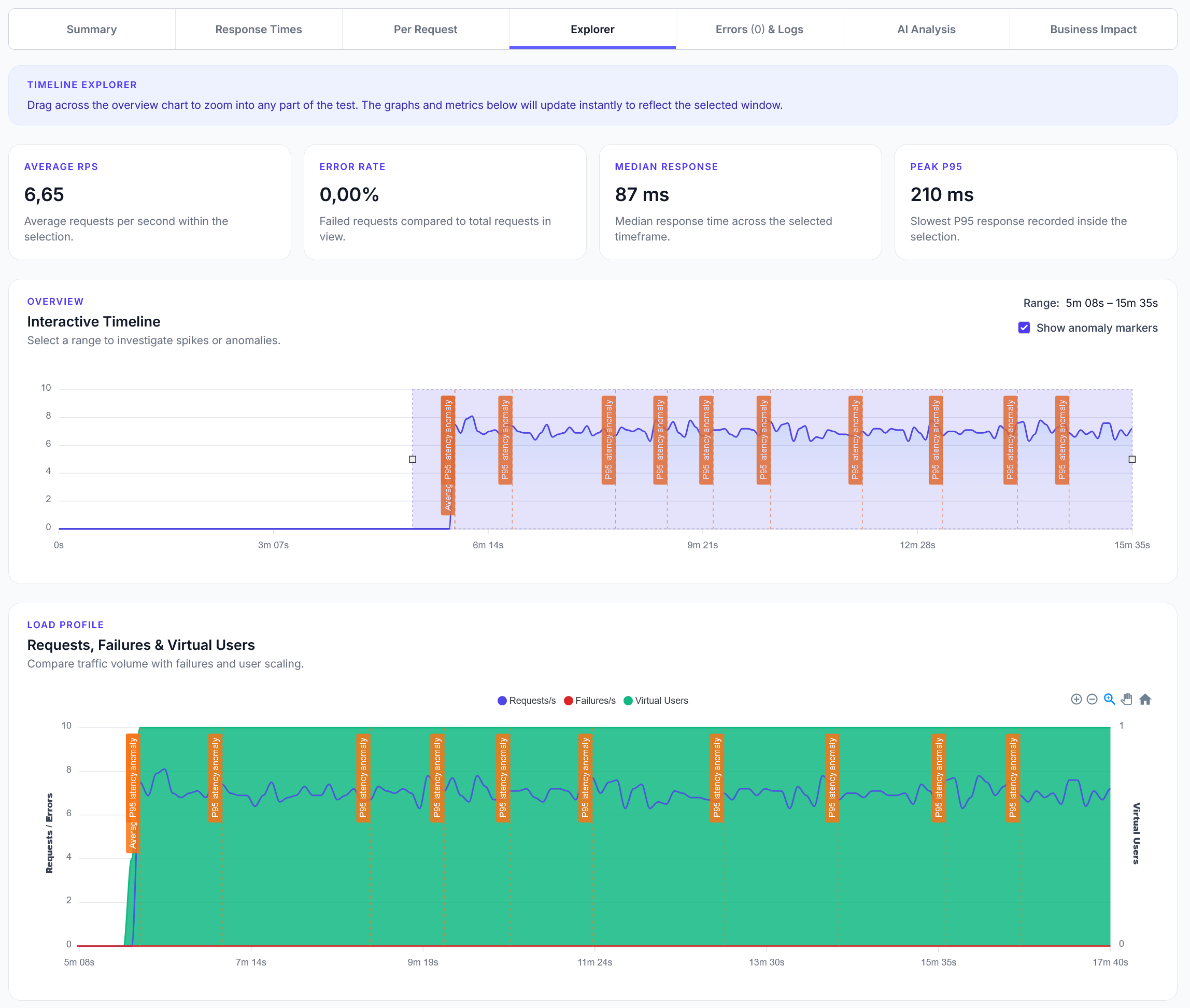
Explorer reports addition
We have added a new Explorer feature to reports, with a timeline scrubber and easy anomaly detection.
Learn how to send an HTTP POST request with a JSON data payload using LoadForge.
LoadForge can record your browser, graphically build tests, scan your site with a wizard and more. Sign up now to run your first test.
Using LoadForge, sending HTTP POST requests with JSON data is straightforward. Before making the request, you need to prepare and parse your JSON data. This documentation will guide you on how to send a POST request with JSON data using LoadForge.
To send JSON data via an HTTP POST request, the data needs to be serialized before transmission. In Python, you can utilize the json.dumps() method to serialize your data.
In addition to preparing your data, you should also set the content type of your request to application/json in the headers to inform the receiving server that you're sending JSON data.
In the provided example, a payload consisting of two key-value pairs will be posted to the /post/endpoint. Follow the steps and the code sample below:
Setup and Imports
Start by importing necessary modules like time, json, and relevant locust classes.
Define User Behavior
Create a class (QuickstartUser) that extends the HttpUser class from Locust. This will define the behavior of a simulated user.
Set Waiting Time
Use wait_time to simulate the wait period between tasks. This example uses a randomized wait time of 3 to 5 seconds.
Define the Task
Within the user class, define a task named api_page. This task sends a POST request with the payload.
import time, json
from locust import HttpUser, task, between
class QuickstartUser(HttpUser):
wait_time = between(3, 5)
@task(1)
def api_page(self):
payload = {
'key': 'value',
'question': 'answer123'
}
headers = {'content-type': 'application/json'}
response = self.client.post(
"/post/endpoint",
data=json.dumps(payload),
headers=headers
)
LoadForge is built on top of locust.io, allowing you to leverage the full capabilities of the open-source Locust framework. If you're already using Locust, consider importing your scripts to LoadForge to enhance and simplify your load testing process.
By following the above instructions, you can effectively send POST requests with JSON data using LoadForge. Remember always to prepare your data and set the appropriate headers to ensure successful data transmission.